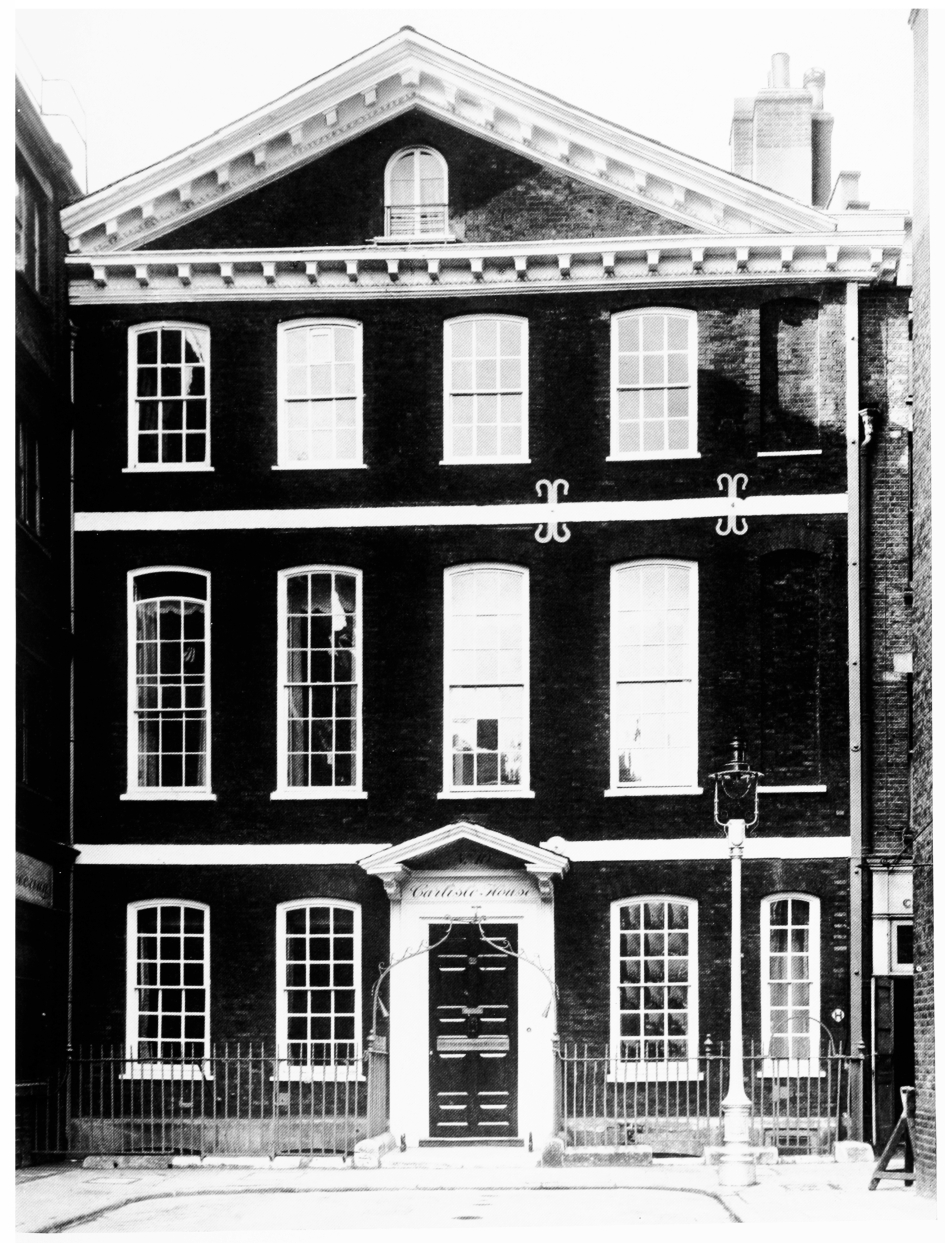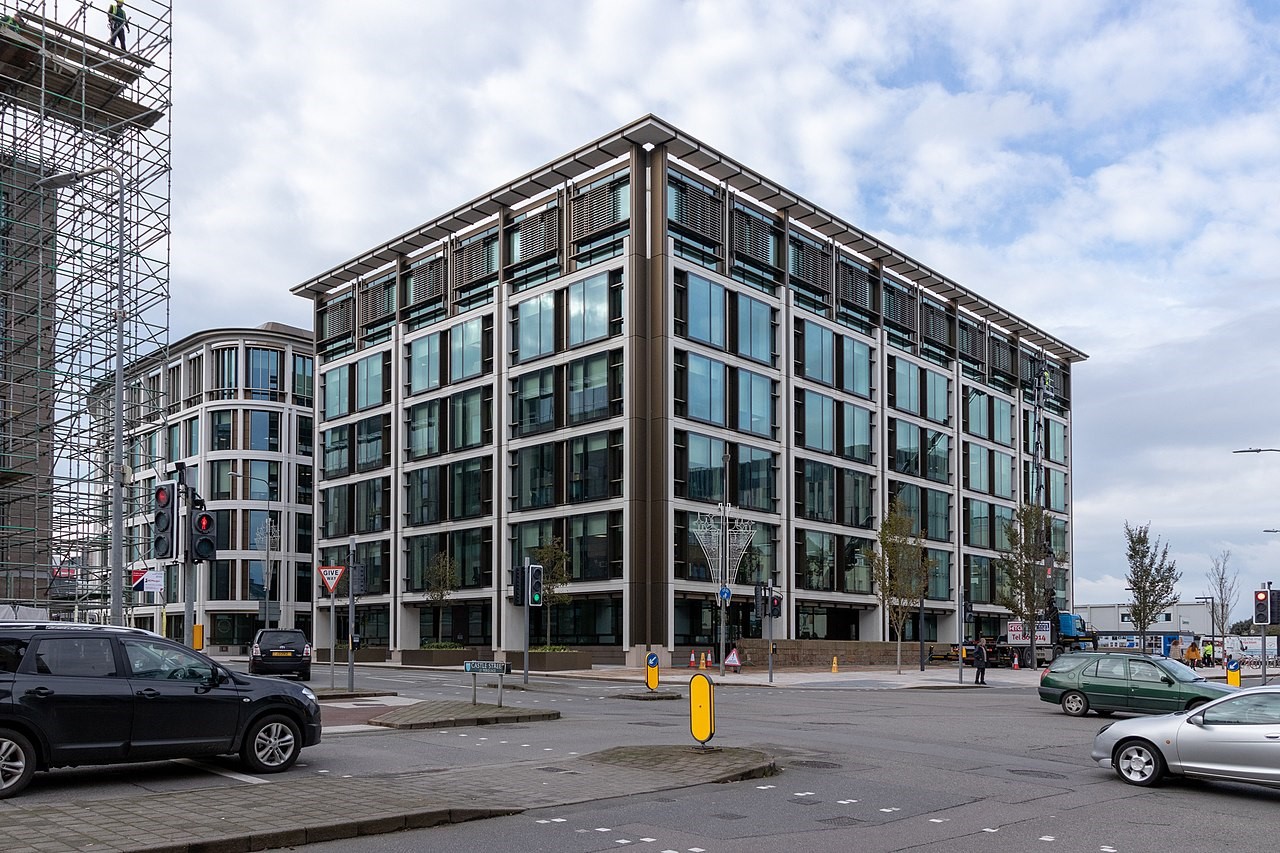Something about the Kiwi psyche hit home the other week.
I was on holiday in Queenstown. And I visited Angelo Drive in Frankton, with sweeping views over the lake. I admired the modern homes and the tranquil views they would give their owners.
Angelo Drive was named after an ancestor on my father’s side. He had land and a store near that site.
Stewart Richard Angelo had moved to the Queenstown-Lakes District as an adventurous young man from London.
Before him, Domenico Angelo (Angelo Domenico Malevolti Tremamondo) had left his father’s merchant business to come to London via Paris. There he shortened his name, thankfully.
Here’s the generational psyche.
Both Stewart and Domenico bought substantial property as soon as they were able to. Business success in London enabled Domenico to acquire a particularly fine property. Carlisle House in Soho Square.

Carlisle House, 1936. Source: British History Online
That is the last known photo of the premises, long after it was willed to and then sold by Angelo’s sons.
It was destroyed by a German bomber on a moonlight night in May 1941.

Source: West End at War
Property and wealth seldom passes down more than a generation or two.
In fact, an estimated 70% of generational wealth doesn’t make it past the second generation.
And 90% disappears by the third.
The other 10%?
When I was working in offshore finance, I did come across some family offices that had maintained wealth since the 19th century.
The assets had most likely been sold and invested in market instruments like shares and some commercial property.
I recall visiting a family office in Jersey, St Helier. The family had built a shipping fortune in the 1800s. Juxtaposed against their floor of a modern glass and steel office tower were beautiful pieces of ancient furniture from the old ships. Probably the last artefacts of the long-gone enterprise.

International Finance Centre, St Helier, Jersey. Source: Wikipedia
Another family office, in a similarly modern building, had one of the largest collections of Scottish art hanging on the white walls.
In both cases, these families had passed enormous wealth to multiple generations. They possessed some unique features:
- The fortunes were large.
- The original business and property assets were mainly divested into more marketable instruments such as stocks and shares.
- The original fortune was set up as a family office / trust situation where the remaining beneficiaries could mainly derive income — but not the capital, except in certain limited situations.
Of course, looking at some of these situations as an investment analyst, they were seldom trouble-free.
Family members often sought more income or funds than the portfolios or trust deeds afforded them. There were even cases of litigation, which a friend of mine was involved with.
I learnt from this time:
- Property assets may not be the most ideal intergenerational repositories of wealth, since they require management — and their situation can change.
- A successful trust-fund portfolio is ideally focused on being highly income generative.
- Ideally, such portfolio is managed by a skilled portfolio manager who can deliver growth ahead of inflation, and income ahead of fixed interest rates over the long run.
But here’s the thing with the Kiwi psyche. And probably the psyche of most New World people. (Australians, South Africans, Canadians, and Americans too.)
You and I are the sons and daughters of settlers and pioneers. It is in our DNA to focus on real estate as our most vital and comfortable investment. Particularly residential property.
But if you spend any length of time amongst family offices, where substantial and intergenerational wealth is managed, you tend to see something different: the most successful portfolios are focused on equity portfolios, and/or some high-quality commercial property.
What we see today in New Zealand is that residential property has already become quite a fraught investment.
That’s largely of our own making. We invested in little else for decades. And set up draconian development rules around our opportunity-rich areas (like Auckland). In the end, only the prosperous can buy a house there.
How do the potential forces look going forward?
- Some people may want to subdue residential property investing. This may involve measures against landlords, such as no interest-deductibility and tighter rules. At the margins, they may also consider wealth or capital gains taxes.
- Meanwhile, other people may want to reduce these rules but open up mass development by removing city limits. (One analysis we did on this found that the Auckland urban land supply for building could increase 28% immediately.)
- Mortgage interest rates are likely to stay elevated, at least until late 2024. And we may not see ultra-low interest rates again, given that pandemic loosening was an anomaly.
- Yields (based on current high home prices) suggest that most investors cannot generate decent income at all. They may be better off putting their money into a market portfolio. (Note: this is not financial advice — just a read on the average situation. Every circumstance is different.)
- Auckland is not in danger of a Luftwaffe bombing anytime soon, but it does sit amongst more than 50 active volcanoes.
- While an eruption is a low probability event on immediate human timescales, it is high risk from an intergenerational perspective due to the widespread damage it could cause. Other parts of New Zealand are similarly exposed to other hazards.
My own personal view is that wealth may yield and survive when skilfully managed in a market portfolio.
Many will say that this form of investment cannot be leveraged.
That is a misconception. In our Wholesale Managed Accounts, where we do use leverage, that is typically available at lower interest rates than home mortgages.
Of course, leverage adds risk. It can be subject to margin call if the market plummets. We tend to use it more in our own portfolios, as opposed to those of clients.
But broker margin is not too different to the leverage used by property investors when understood.
They key is to build a robust portfolio that can grow. And deliver strong income.
Right now I am going through our holdings line by line to ensure every stock can.
I target dividends of 4-10% and capital growth of 5-15%. Ideally giving me somewhere around a 15% target in total over the longer run.
The NZX used to have higher dividend yields. But since the pandemic, some stocks have not returned to paying a dividend, or show a lower dividend yield.
For the Smartshares NZ Dividend ETF, there is currently a yield of about 4.9%.
Of course, many individual stocks offer a much higher yield, such as those paying 10% or more that I featured in this report on July 5:
Dividends are not guaranteed. They can rise, fall or be cut. It comes down to expert monitoring of each company situation and building a robust portfolio.
For readers who may qualify as a Wholesale or Eligible Investor, we may be able to assist you in this area.
For the rest of this month, we are offering free consultations on our Wholesale Managed Accounts Service.
Please request a consultation today so we can discuss your eligibility. And the opportunities we see in the current market. (Available until 31 July, 2023).
Regards,
Simon Angelo
Editor, Wealth Morning
This article is the editorial content of this periodical. It is the author’s personal opinion and commentary. It is general in nature and should not be construed as any promotion or as any financial or investment advice. Wealth Morning Managed Accounts are available to Eligible Investors and Wholesale Investors (not to Retail Investors) as defined in the Financial Markets Conduct Act (2013).





Simon is the Chief Executive Officer and Publisher at Wealth Morning. He has been investing in the markets since he was 17. He recently spent a couple of years working in the hedge-fund industry in Europe. Before this, he owned an award-winning professional-services business and online-learning company in Auckland for 20 years. He has completed the Certificate in Discretionary Investment Management from the Personal Finance Society (UK), has written a bestselling book, and manages global share portfolios.